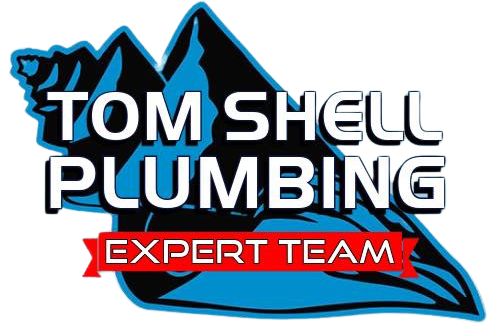At the heart of a smooth-running household is an efficient drainage system. Understanding drain cleaning is key to maintaining this essential part of your home. From clearing out simple blockages to tackling more serious issues, drain cleaning encompasses a variety of methods designed to keep your pipes flowing freely. Without regular upkeep, minor clogs can escalate into significant problems, potentially leading to costly repairs.
Kitchen sinks often fall victim to the buildup of grease and food particles. Over time, even small amounts of grease can solidify and trap food debris, leading to stubborn blockages. Cooking oils, butter, and fatty residues from food can congeal inside the pipes, narrowing the passage and causing water to drain slowly or not at all. In bathrooms, hair and soap scum are frequent culprits. Hair can easily form clumps that trap soap residue, creating a thick, sticky mass that obstructs water flow. Soap, when combined with hard water, forms a residue that adheres to pipe walls, exacerbating the problem.
The Benefits Of Professional Drain Cleaning
Identifying the early signs can save you from bigger headaches down the line. One of the most common indicators is slow draining water. If you notice water lingering in your sinks, tubs, or showers, it's likely a sign of a blockage. Unpleasant odors wafting from your drains can also signal trouble, as trapped debris decomposes and emits foul smells.
Another warning sign is gurgling sounds coming from your drains. These noises suggest that air is trapped within the pipes due to a blockage, disrupting the normal flow of water. As water tries to pass through the clogged area, it creates air pockets that produce gurgling or bubbling sounds.
Professional drain cleaning offers a range of advantages, starting with the effectiveness of snaking. This method involves using a flexible auger, also known as a plumber's snake. It is inserted into the drain and maneuvered through the pipe until it encounters the clog. The snake's rotating action breaks up the blockage, allowing it to be pulled out or flushed away. Snaking is particularly effective for removing hair and small obstructions close to the drain opening.
For more stubborn clogs, hydro jetting proves to be a powerful solution. Hydro jetting uses high-pressure water to blast through even the toughest obstructions, leaving your pipes clear and clean. This technique involves inserting a hose with a specialized nozzle into the drain. The nozzle directs high-pressure water streams in multiple directions, effectively scouring the pipe walls and dislodging grease, scale, and other debris. Hydro jetting not only clears the clog but also cleans the entire pipe, reducing the likelihood of future blockages.
The Pitfalls Of DIY
Taking on drain cleaning yourself might seem like a cost-effective option, but it carries significant risks. One major concern is the potential for damage to your pipes. Chemical cleaners, often touted as quick fixes, can erode pipes over time, leading to leaks and other issues. These chemicals are designed to dissolve clogs, but they can also corrode pipe materials, particularly in older plumbing systems. This erosion weakens the pipes and increases the risk of leaks and ruptures.
Additionally, DIY methods usually provide only temporary solutions, addressing the symptoms rather than the root cause of the problem. Plungers and over-the-counter drain cleaners might clear minor clogs, but they often fail to remove the entire blockage. This leaves behind residue that can quickly accumulate and cause another clog. Without proper tools and techniques, DIY efforts can actually push the clog further into the pipe, making it more difficult to remove.
Safety is another critical factor; chemical drain cleaners can pose health risks and negatively impact the environment. The fumes from these cleaners can be harmful if inhaled, and the chemicals can cause burns if they come into contact with skin. Additionally, the harsh ingredients can damage septic systems and harm aquatic life if they enter the water supply. Using mechanical tools improperly can also lead to injury or further damage to your plumbing.
Neglecting Your Drains
Neglecting clogged drains can lead to a host of serious issues that go beyond minor inconveniences. One significant problem is the release of potentially harmful gases and odors into your home. When organic matter decomposes within a clog, it produces gases like methane and hydrogen sulfide. These gases not only smell unpleasant but can also pose health risks if they accumulate in confined spaces.
Don't let clogged drains disrupt your daily routine. Trust the experts at Tom Shell Plumbing to provide fast, reliable, and professional cleaning services. Our team uses the latest technology and proven methods to ensure your pipes are clear and functioning efficiently. Contact us today for a consultation and take the first step towards a clog-free home.
Frequently Asked Drain Cleaning Questions
Q1. Are there any signs that might surprise me?
A1. Yes, one surprising sign can be fruit flies. While they are typically associated with overripe fruit, they can also be attracted to the organic material in clogged drains. If you see fruit flies around your sink, it might be time to check for a clog.
Q2: Can a clogged drain affect my water bill?
A2: While a clogged drain itself doesn't directly increase your water bill; it can lead to issues that might. For example, a blockage can cause a leak, or a pipe burst, leading to water wastage and higher bills.
Q3: What should I do if multiple drains in my house are clogged at the same time?
A3: This often indicates a problem with your main sewer line. This requires immediate attention from
